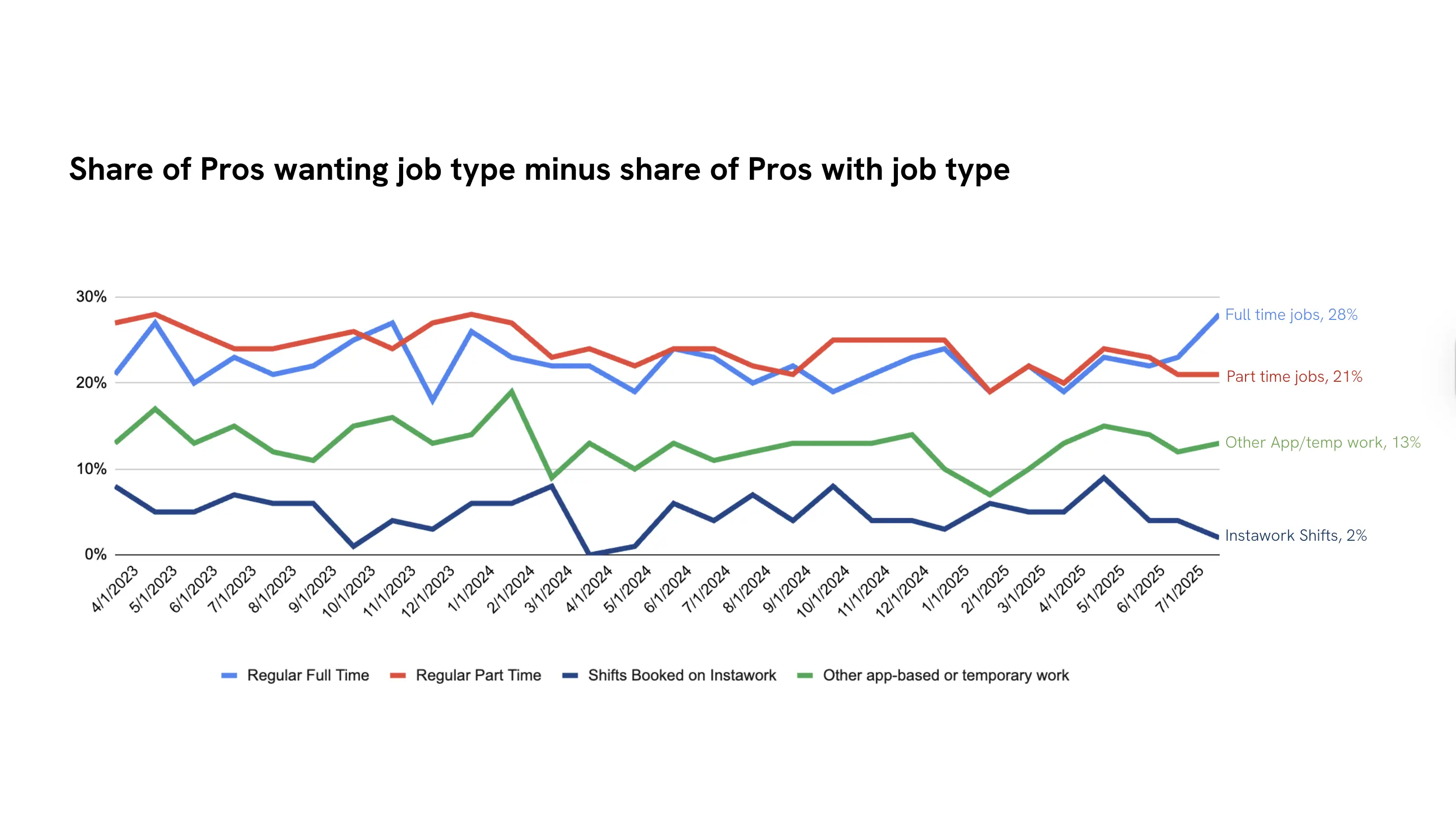
How to get ahead during a busy events season
September 13, 2021
•
min

Instawork Pay Signal Index Hits 6-Month High as Hospitality Heats Up
July 3, 2025
•
4
min
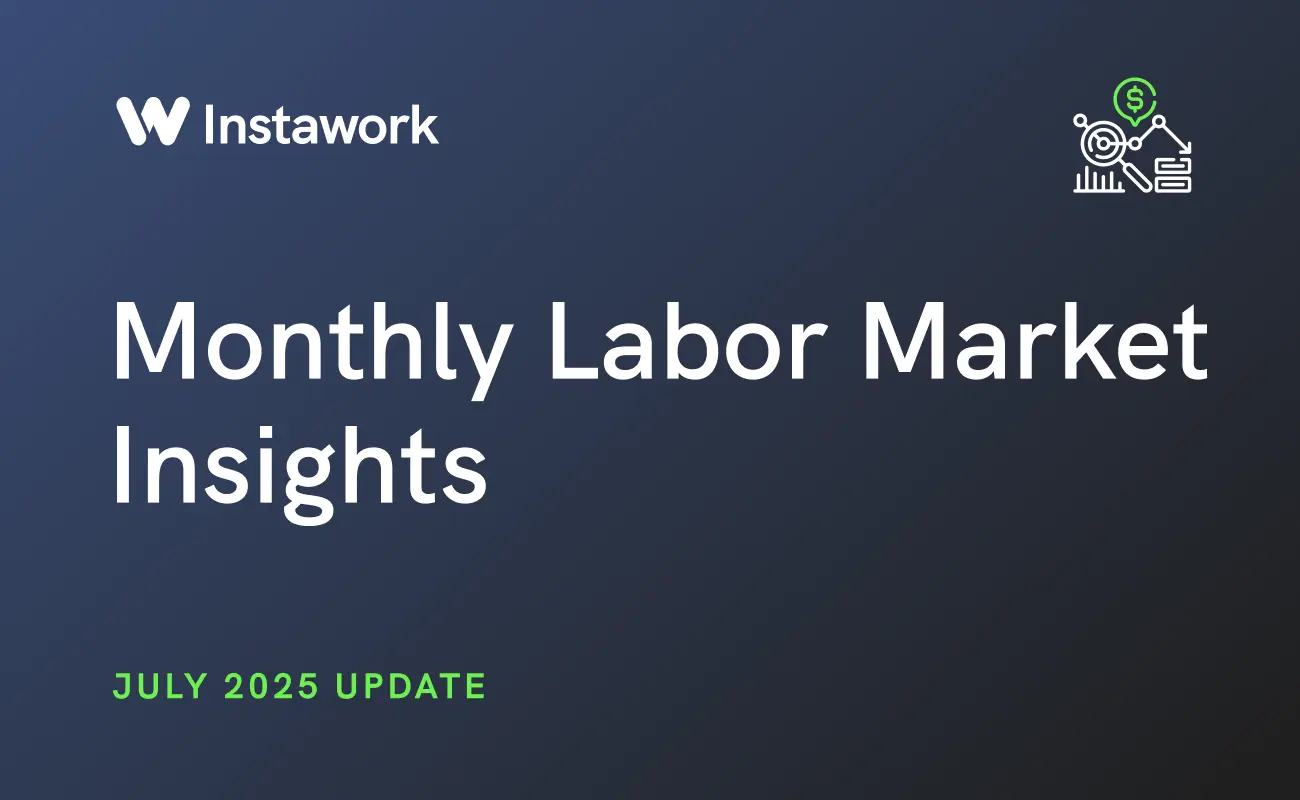
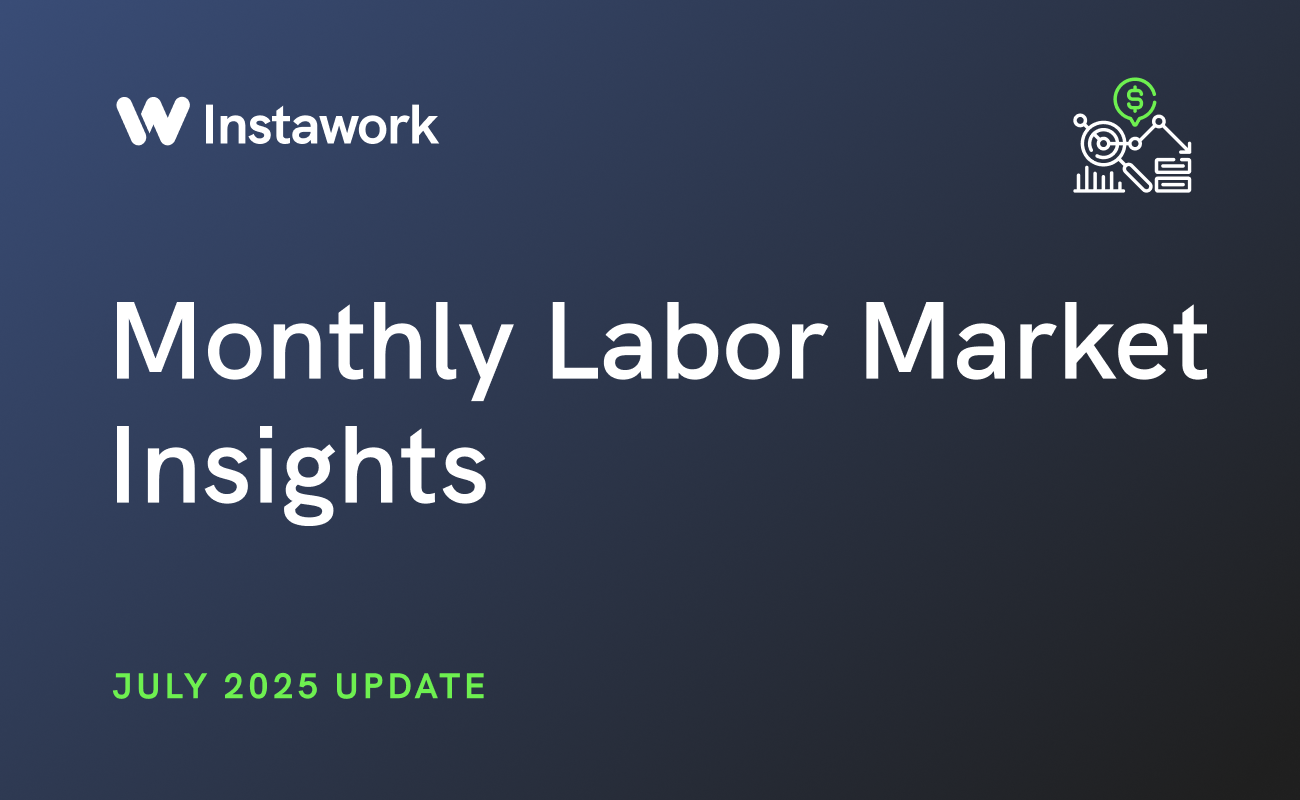
Every day, the Instawork platform handles thousands of transactions involving businesses and hourly workers, generating a large amount of data on hourly pay as well as other aspects of the labor market. This brief includes Instawork’s Pay Signal Index, which indexes trends in pay rates for hourly positions and a summary of the labor market situation for Instawork Professionals (Pros). Since businesses can book shifts in advance on the Instawork platform, the metrics include forward-looking data for the current month as well.
Looking for staff? Create a free Instawork business account and get matched with workers today.
Labor markets had a moderate decline in productivity compared to June. Instawork’s Pay Signal Index (PSI) records 50.36, down -1.19 from June. July often sees a mild seasonal slowdown after the individual summer hiring surge (often strongest in May/June for events, hospitality, and travel). Employers start reducing extra staffing as summer business plateaus. Seasonal slowdown has historically caused July PSI rates to decline from June, as seen in 2024 and now 2025. While average hourly earnings for the US overall rose in July, Instawork Pay Signal Index better represents hospitality and light industrial sectors.
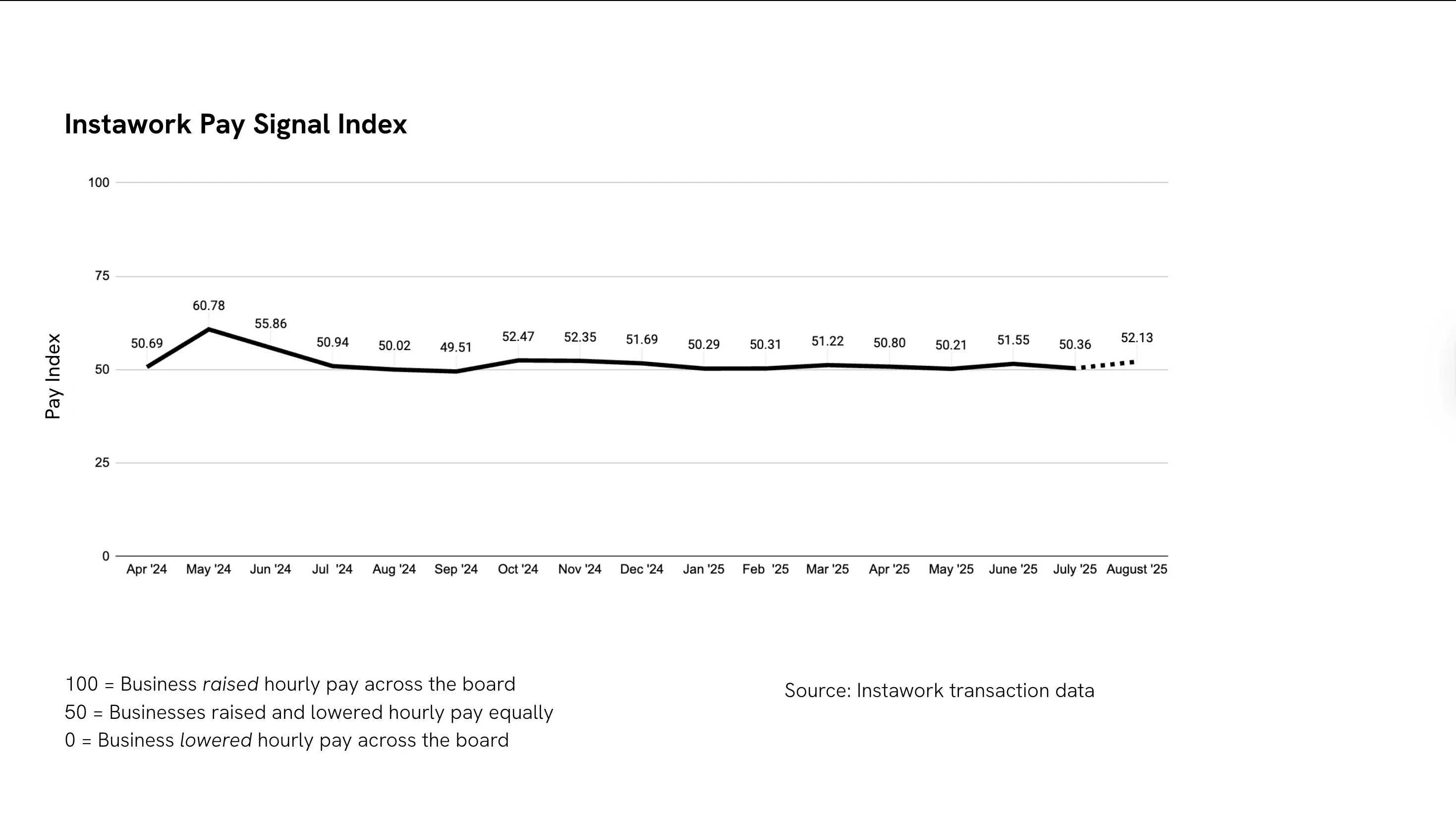
Instawork's pay trends data offers valuable insights into how businesses are planning their labor. This report focuses on data spanning April 2024 to June 2025, highlighting patterns and potential impacts for businesses employing hourly workers..
Hospitality, once a post-pandemic growth engine, added just 5,000 jobs. As summer events season is in full swing Concession worker wages is up 11% since last month and wages for custodial workers is up 8%. Food service workers, line cooks and prep cooks saw modest changes in wages.
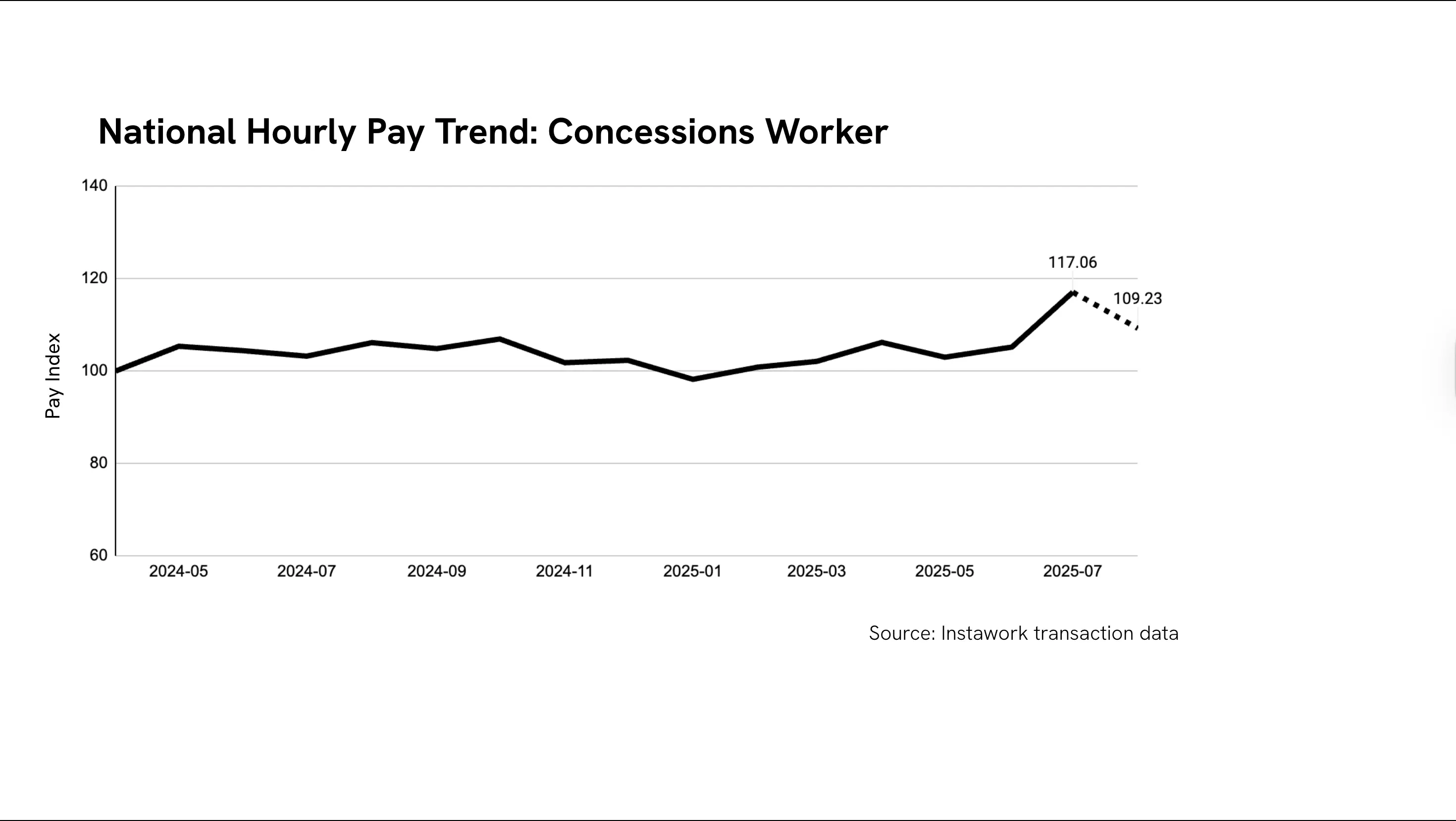
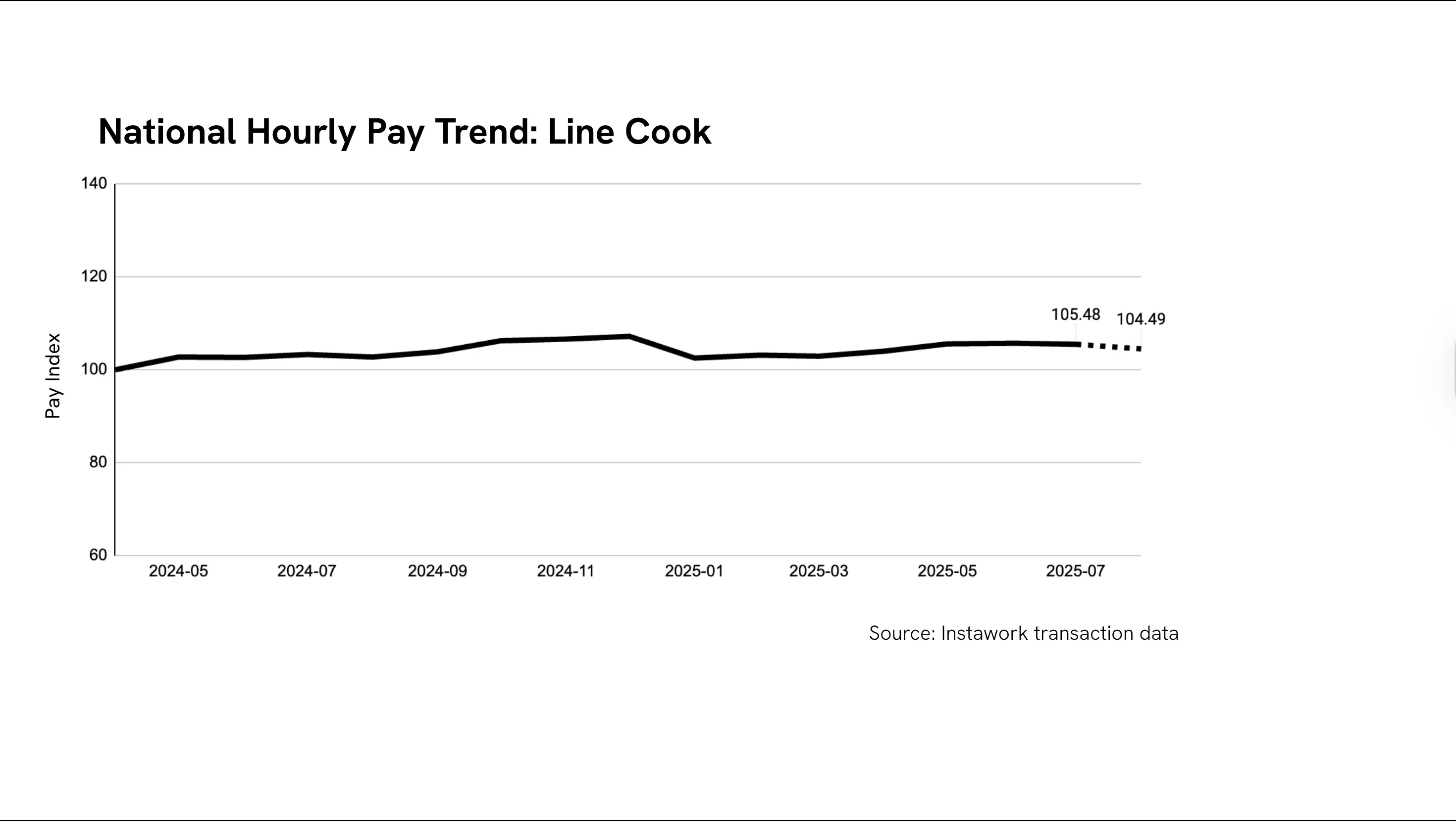
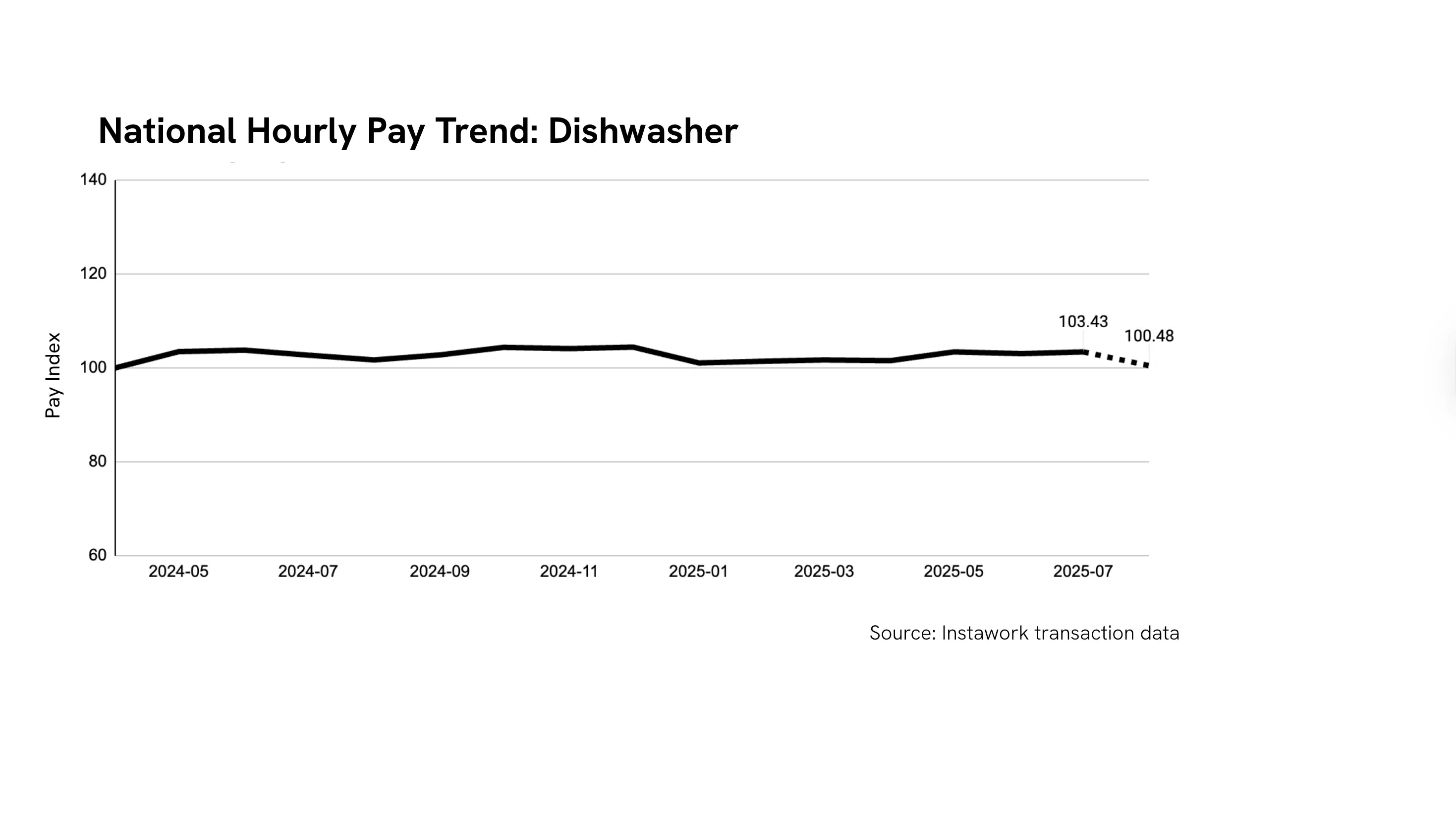
The U.S. labor market presented a mixed picture for the manufacturing and warehousing sectors in July 2025. While the broader transportation and warehousing sector saw a modest increase in employment, the manufacturing industry continued its recent trend of job losses, according to the latest report from the Bureau of Labor Statistics (BLS).
Industries sensitive to tariffs experienced slow growth or job losses due to increased import expenses. Manufacturing employment contracted by 11,000 jobs in July. In contrast, the Transportation and Warehousing sector as a whole saw a slight uptick in employment. According to the BLS Jobs Report, warehousing, along with retail trade, contributed 19,000 jobs in July.
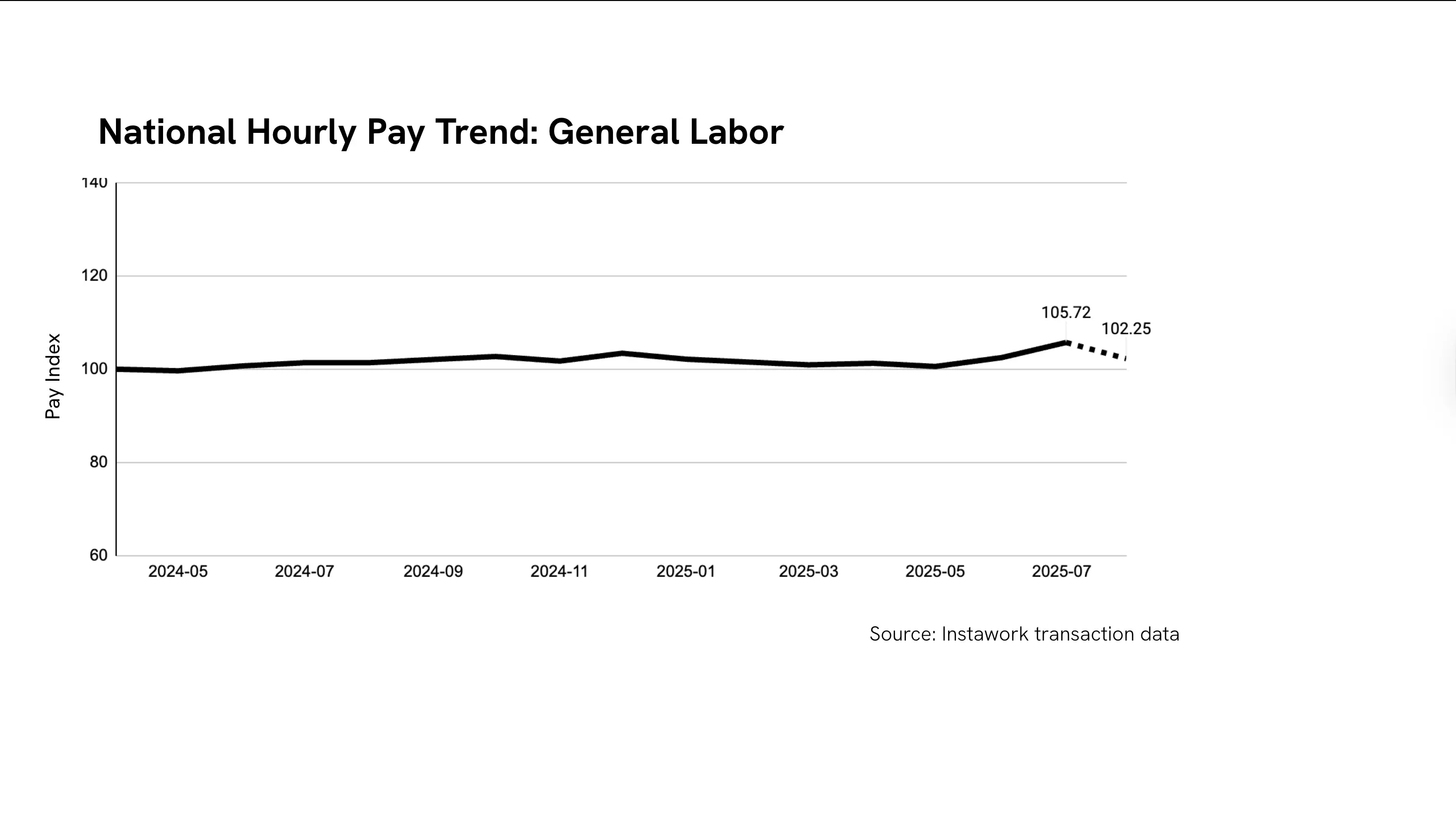
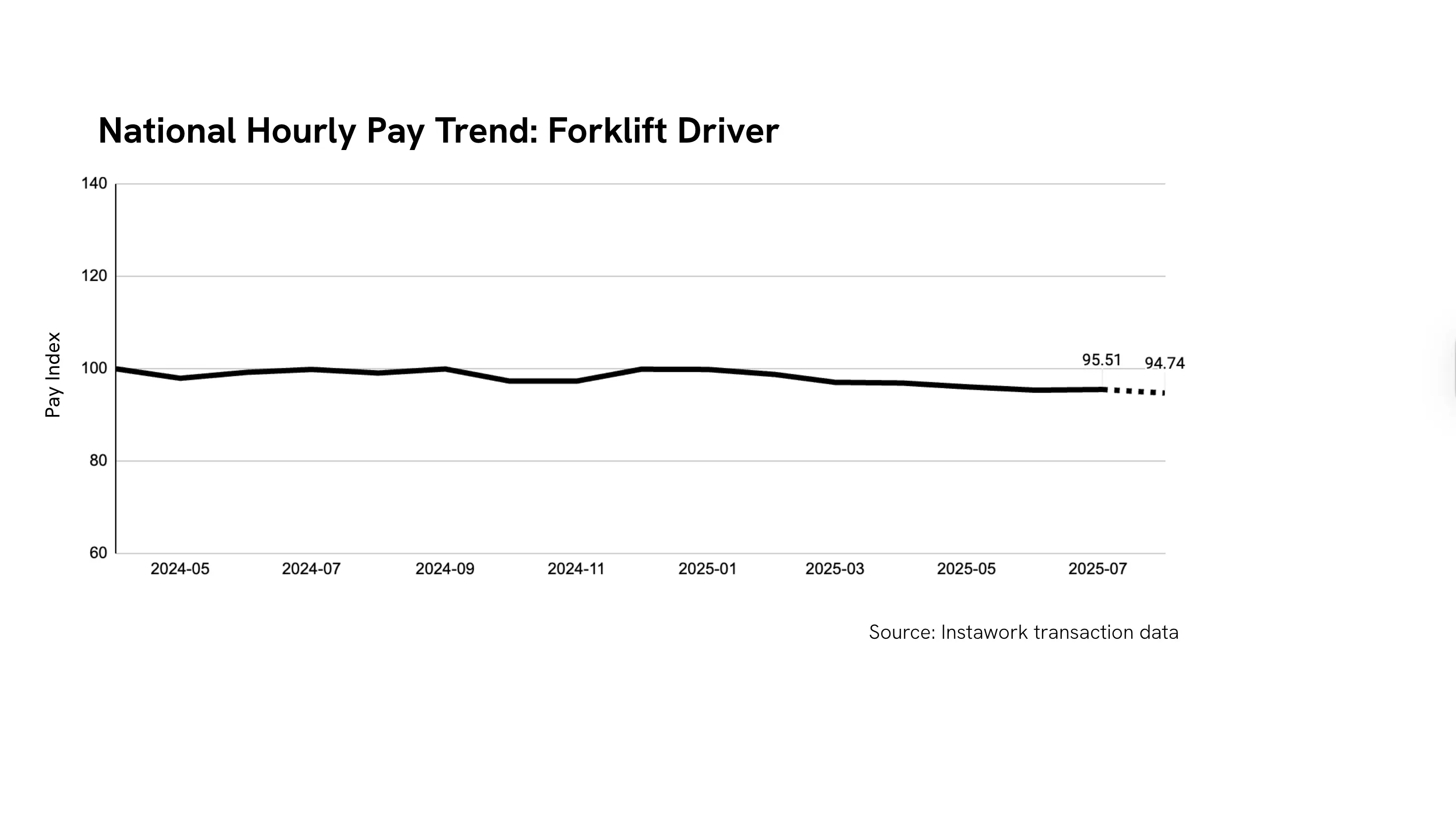
Each month, we survey Pros regarding their labor market experiences. July showed an improvement in Instawork Pros’ expectations and ability to find flexible work on Instawork. Their ability to find full-time work decreases sharply as the manufacturing industry continues its recent trend of job losses, and as businesses opt for flexibility in their labor planning.
